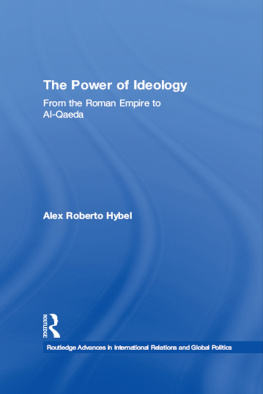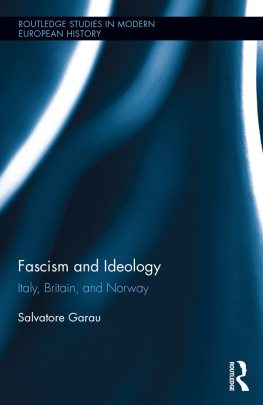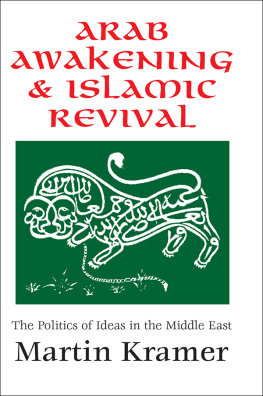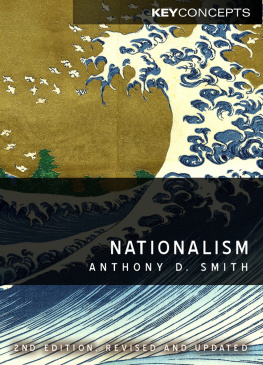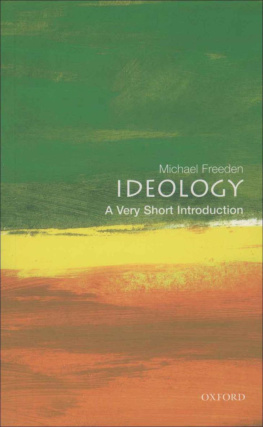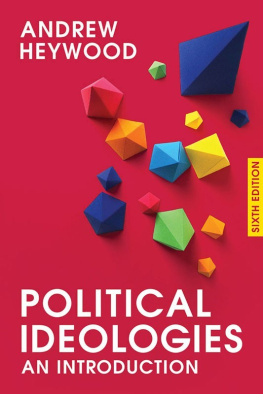| Foreign Policy and Discourse Analysis
France, Britain and Europe
Henrik Larsen |
| Agency, Structure and International Politics
From ontology to empirical enquiry
Gil Friedman and Harvey Starr |
| The Political Economy of Regional Co-operation in the Middle East
Ali Carkoglu, Mine Eder, Kemal Kirisci |
| Peace Maintenance
The evolution of international political authority
Jarat Chopra |
| International Relations and Historical Sociology
Breaking down boundaries
Stephen Hobden |
| Equivalence in Comparative Politics
Edited by Jan W. van Deth |
| The Politics of Central Banks
Robert Elgie and Helen Thompson |
| Politics and Globalisation
Knowledge, ethics and agency
Martin Shaw |
| History and International Relations
Thomas W. Smith |
| Idealism and Realism in International Relations
Robert M. A. Crawford |
| National and International Conflicts, 194595
New empirical and theoretical approaches
Frank Pfetsch and Christoph Rohloff |
| Party Systems and Voter Alignments Revisited
Edited by Lauri Karvonen and Stein Kuhnle |
| Ethics, Justice and International Relations
Constructing an international community
Peter Sutch |
| Capturing Globalization
Edited by James H. Mittelman and Norani Othman |
| Uncertain Europe
Building a new European security order?
Edited by Martin A. Smith and Graham Timmins |
| Power, Postcolonialism and International Relations
Reading race, gender and class
Edited by Geeta Chowdhry and Sheila Nair |
| Constituting Human Rights
Global civil society and the society of democratic states
Mervyn Frost |
| US Economic Statecraft for Survival 193391
Of sanctions, embargoes and economic warfare
Alan P. Dobson |
| The EU and NATO Enlargement
Richard McAllister and Roland Dannreuther |
| Spatializing International Politics
Analysing activism on the internet
Jayne Rodgers |
| Ethnonationalism in the Contemporary World
Walker Connor and the study of Nationalism
Edited by Daniele Conversi |
| Meaning and International Relations
Edited by Peter Mandaville and Andrew Williams |
| Political Loyalty and the Nation-State
Edited by Michael Waller and Andrew Linklater |
| Russian Foreign Policy and the CIS
Theories, debates and actions
Nicole J. Jackson |
| Asia and Europe
Development and different dimensions of ASEM
Yeo Lay Hwee |
| Global Instability and Strategic Crisis
Neville Brown |
| Africa in International Politics
External involvement on the continent
Edited by Ian Taylor and Paul Williams |
| Global Governmentality
Governing international spaces
Edited by Wendy Larner and William Walters |
| Political Learning and Citizenship Education Under Conflict
The political socialization of Israeli and Palestinian youngsters
Orit Ichilov |
| Gender and Civil Society
Transcending boundaries
Edited by Jude Howell and Diane Mulligan |
| State Crises, Globalisation and National Movements in North-East Africa
The horns dilemma
Edited by Asafa Jalata |
| Diplomacy and Developing Nations
Post-Cold war foreign policy-making structures and processes
Edited by Justin Robertson and Maurice A. East |
| Autonomy, Self-governance and Conflict Resolution
Innovative approaches to institutional design in divided societies
Edited by Marc Weller and Stefan Wolff |
| Mediating International Crises
Jonathan Wilkenfeld, Kathleen J. Young, David M. Quinn and Victor Asal |
| Postcolonial Politics, the Internet and Everyday Life
Pacific traversals online
M. I. Franklin |
| Reconstituting the Global Liberal Order
Legitimacy and regulation
Kanishka Jayasuriya |
| International Relations, Security and Jeremy Bentham
Gunhild Hoogensen |
| Interregionalism and International Relations
Edited by Heiner Hnggi, Ralf Roloff and Jrgen Rland |
| The International Criminal Court
A global civil society achievement
Marlies Glasius |
| A Human Security Doctrine for Europe
Project, principles, practicalities
Edited by Marlies Glasius and Mary Kaldor |
| The History and Politics of UN Security Council Reform
Dimitris Bourantonis |
| Russia and NATO Since 1991 |

